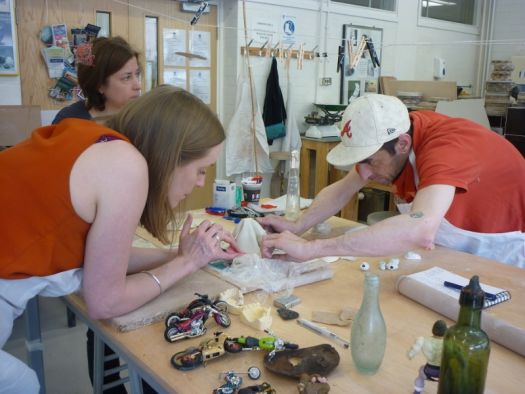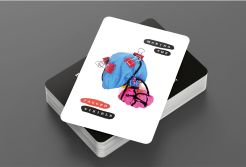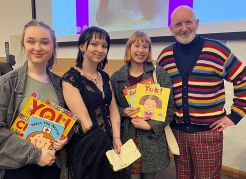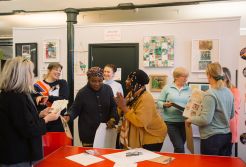Exhibition explores art and substance abuse
20 May 2015
Working with ceramics can help with recovery
A NEW exhibition highlights how exploring ceramic materials, methods and processes can be a catalyst for positive change for people in recovery from substance abuse.
Typecast-Manchester, at the Manchester School of Art, until May 29, features works and works in progress created by a group of local people in the early stages of substance misuse recovery.
Led by artist-makers and Manchester School of Art lecturers Jenny Walker and Eleanor Simms, the show explores how material and object making can be used to help express complex emotions and distressing life events.
Initiated by PORe (Portraits of Recovery) and developed in partnership with the Manchester School of Art, Typecast-Manchester is part of a wider two year European project exploring new approaches to recovery by working with contemporary art and artists.
Telling a story
Mark Prest, artistic director of PORe (Portraits of Recovery) said: “We want to tell a story, shine a light, blow away the myths and stand proud. We want to generate new possibilities for people in recovery by challenging and changing attitudes.”
Project participant Nathan Aiyna Sassen, himself an artist, said: “Typecast has allowed me to explore an area of my life that previously would have resolved in substance misuse. Clay has been one of the materials I have most wanted to use. As an addict, respect is lost and now this respect is coming back. People are coming back out of the woodwork. A big commission is possibly coming my way too.”
Jenny Walker, senior lecturer in three dimensional design from the Manchester School of Art said: “What really amazed me about the group is how eager they were to get involved with the creative process. It's not uncommon for people working with a new artistic medium to feel a little paralysed at first.
“But our group had no fear in facing challenges and drawing on their emotions and experiences to create some inspirational work.”
Social enabler
Joe McCullagh, Head of Design said: “The exhibition is significant in that it brings creatively together a group of diverse people from different backgrounds and experiences.
“The project is an example of how design can truly be a social enabler where through ceramic design and material design the group can explore design as a way to deal with and also enhance their lives. The social process of design as (verb) a doing act rather than simply an end product (noun) helps us to explore who we are and how it can affect our well-being.”
Project participants were mainly recruited from Lifeline-Manchester Drug & Alcohol Services.
A selection of artefacts will feature in the 2015 British Ceramics Biennial to be held this coming September in Stoke-on-Trent.
About Typecast
Over two years the project has worked with artists, European centres of ceramic excellence and other cultural agencies in the UK, Ireland, Holland, Sicily, Spain and Turkey to improve the lives of people & communities in recovery by supporting greater visibility and by providing innovative, arts based social re-integration opportunities.
Each partner country delivered a series of artist led residencies looking at notions of community & personal heritage, how these co-existing themes can support new identities and a more inclusive sense of voice.
During the project, participants utilised personal histories and explored them in relation to the wider contexts of recovery, appreciating collective narratives, and their own personal development. Participants expressed their understanding of significant life events through visual self-evident means, developing a material vocabulary through clay and mixed media, which communicated important aspects of their journeys and supports future aspirations and goals.
Typecast is funded under the European Union’s Life Long Learning Program Grundtvig, which supports individuals and organisations involved in non-vocational adult education to participate in European training activities, and by the European Social Fund and the Skills Funding Agency.



